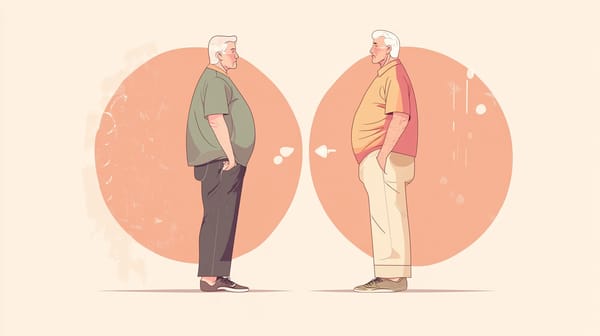10 Science-Backed Strategies to Overcome a Weight Loss Plateau

Is Your Weight Loss Plan Stalling? Here's What to Do
Embarking on a weight loss journey requires dedication, perseverance, and making healthy lifestyle changes. Many people experience initial success, only to hit a frustrating plateau where the number on the scale refuses to budge. If your weight loss has stalled despite your best efforts, don't despair. Here are 10 proven strategies to jumpstart your progress.
1. Track Everything You Eat and Drink
When progress slows, meticulously log your food intake using an app like MyFitnessPal. Every bite and sip counts. You may be unknowingly consuming more calories than your body needs. On the flip side, severely restricting calories can slow your metabolism and hinder fat loss. Find the right balance.
2. Focus on Sustainable Lifestyle Changes, Not Quick-Fix Diets
Weight loss expert Dr. Rupal Mathur stresses that diets only work short-term. As you lose weight, your metabolism adapts, requiring fewer calories to maintain your new weight. The key is making permanent healthy changes to your eating habits and relationship with food. Practice mindful eating and address any emotional triggers.
3. Mix Up Your Workout Routine
When you perform the same exercises repeatedly, your muscles adapt and become more efficient, burning fewer calories. Personal trainer Lindsay Schwab recommends regularly changing your workouts to keep your body challenged. Introduce new cardio activities, vary the weights and reps of strength exercises, and avoid falling into a predictable pattern.
4. Combine Cardio and Resistance Training
Cardio torches calories during the workout itself, while resistance training builds metabolism-boosting muscle. Muscles burn significantly more calories at rest compared to fat. Strike a balance between the two exercise modalities to optimize your weight loss.
5. Prioritize Quality Sleep
Studies link sleep deprivation to obesity. Even an hour less sleep per night can lead to less fat loss and more muscle loss. Inadequate rest disrupts hunger hormones, saps daytime energy, and makes you more prone to skipping workouts. Establish a consistent sleep schedule and aim for 7-9 hours per night.
6. Manage Stress Levels
Chronic stress floods your body with cortisol, a hormone that promotes fat storage, especially around the midsection. Find healthy outlets for stress, such as meditation, deep breathing, yoga, or talking with a counselor. Lowering stress can help regulate appetite and prevent stress eating.
7. Stay Hydrated
Thirst is often mistaken for hunger. Drinking water throughout the day helps control appetite, boosts your metabolism, and supports the bodys fat-burning processes. Aim for at least 64 ounces per day, more if you're exercising.
8. Increase Your NEAT
Non-exercise activity thermogenesis (NEAT) encompasses all your daily movement outside of workouts. Take frequent stretch breaks, pace while on the phone, do chores, and look for ways to be more active. These small bursts of movement add up.
9. Get Your Hormones Checked
Underlying hormone imbalances, such as hypothyroidism or elevated cortisol, can stall weight loss despite your best diet and exercise efforts. If you suspect an issue, consult with your doctor about testing your thyroid, cortisol, and sex hormone levels. Addressing any imbalances can help normalize your metabolism.
10. Stay the Course
Weight loss is rarely a linear process. Everyone experiences setbacks and plateaus. The key is to not get discouraged. Keep your goal in mind, but avoid getting hung up on a specific number. Non-scale victories, like having more energy and clothes fitting better, are just as worthy of celebration. Consistency and patience will get you to your goal.




